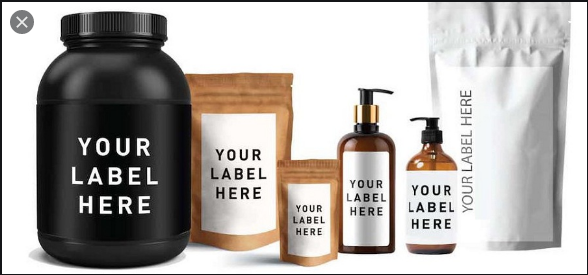A private label product is that which is made by a third-party company but sold under a specific retailer’s brand. It has become a common practice in today’s shopping environment.
What is Private Label Products?
A private label is a product which is generally manufactured or offered by one company, then labeled with another company’s brand. They are also most times referred to as OEM (Original Equipment Manufacturer) products. These items can generate a profitable revenue stream for your store and, if rightly done, can offer your store additional product lines to sell as well as an enhanced degree of credibility and trust with shoppers.
How Private Label Works
Private label manufacturers secure deals with individuals or brands in order to sell their products under the manufacturer’s name with no attribution. The products can be independently sold or in support of other products.
Private labeling works best for products that improve the value of other products.
In case you want to start selling a current product with no prior experience, private labeling is a great way to begin. This is because customers will be more willing to purchase your merchandise via larger manufacturers than through a business that has made no previous transactions, but your product must be able to sell itself without special promotions or brand advertising.
Howbeit, if you are hoping to build your brand, you should not rely too much on private labeling, as you will not be credited for your products. The technique is best suited for individuals who are looking to experiment with production instead of starting a well-known and respected business.
Advantages of Private Label
Here are some of the advantages of private label:
Wholesale Income
You can operate as a wholesaler for your brand and offer limited access to other retailers that pay a premium acquisition cost for the right to carry your brand. This will help you generate additional income as well as spread your brand exposure.
High Margins
Private Label brands usually have a higher profit margin than resale products. This is because the cost of making your own products is generally lower than buying products that are pre-made, mostly if the development and marketing of the products are of high quality.
Exclusivity
With private labeling, you can separate yourself from your competitors. This is because only you have the exclusive right to sell the product. With good marketing, demand will be created for it, which benefits you, because you are your customer’s only source for the product.
Loyalty
Branding via private label is an awesome way of building loyalty from customers who like your products. Because of limited accessibility, customers will become attached to your brand, which allows them to feel as though they are among a select few that own it, which ultimately increases loyalty and sales among your customer base.
The Disadvantages of Private Label
Private labeling is not without disadvantages, even though planning ahead and having a strategic plan that addresses the potential risks and downsides can go a long way in keeping your private labeled goods profitable and sellable. The risks include:
Minimum Orders
Most manufacturers need a minimum quantity for each order before they consider customizing items to fit your private label requirements. Most times, this happens to be a much larger quantity than you would normally buy of any one item or SKU. Thus it is best you try to work with the vendor and be creative when ordering and see how you can get some extended dating on the purchase, or better still meet the minimum purchase with different colors and sizes of the same item.
Dead Inventory
If you have a branded merchandise, you can get a return authorization, but you would not be able to return private-label goods and may just have to reduce the prices downwards to move the units out if customers are not appreciating them.
Customer Perception
Your product lines may suffer some setbacks because some customers assume that private label products are of lesser quality than products from a brand name of which they are familiar. Thus, it will be best to carry out in-depth research on your customers, their likes and preferences, as well as create a name and look for your private label line that matches the level of quality your customers need, and this is also comparable with more familiar branded product lines you offer.
Private Label Categories
Most consumer product category has both branded and private label offerings, which includes:
- Household cleaners
- Frozen foods
- Personal care
- Paper products
- Cosmetics
- Beverages
- Dairy items


